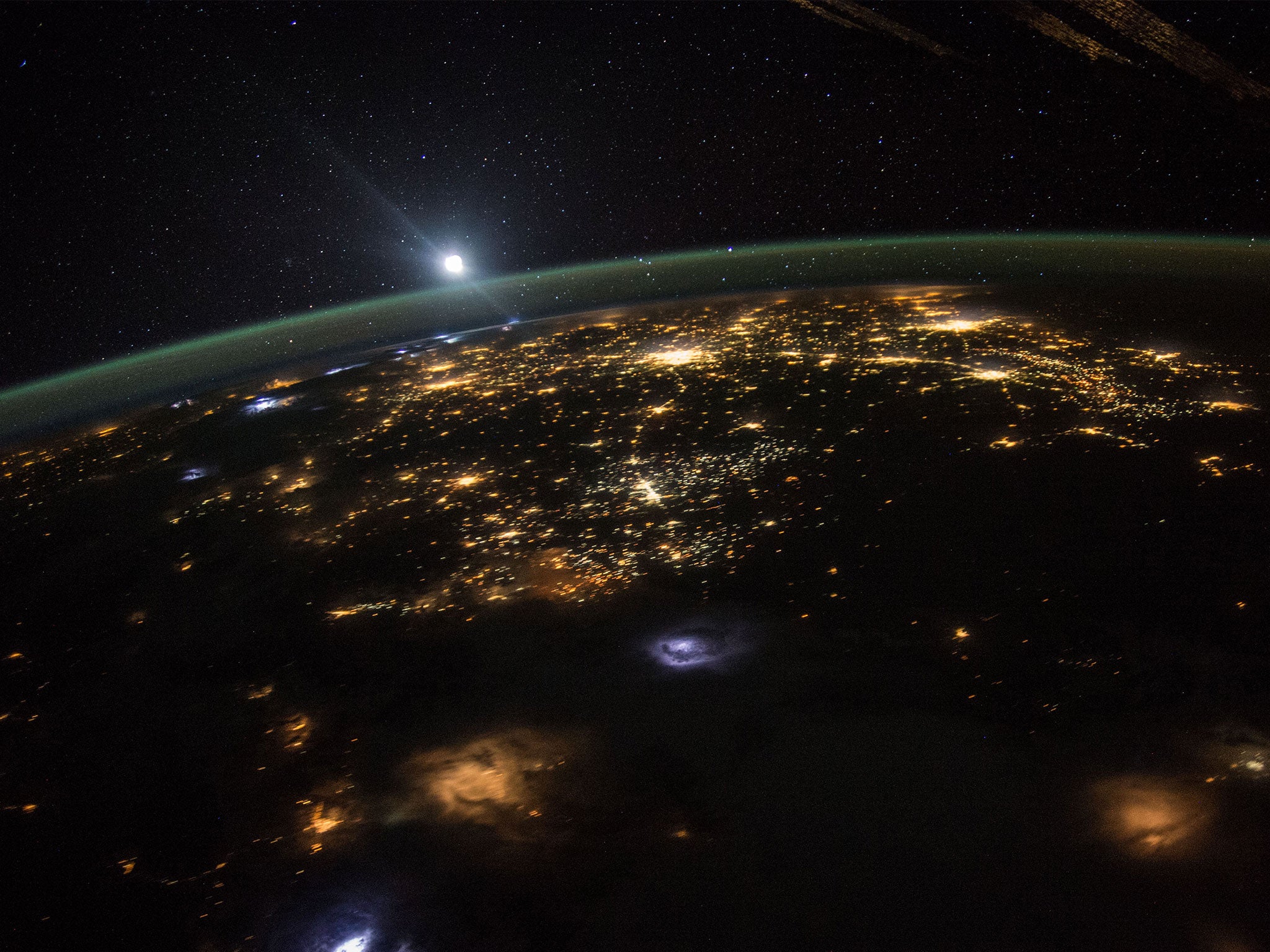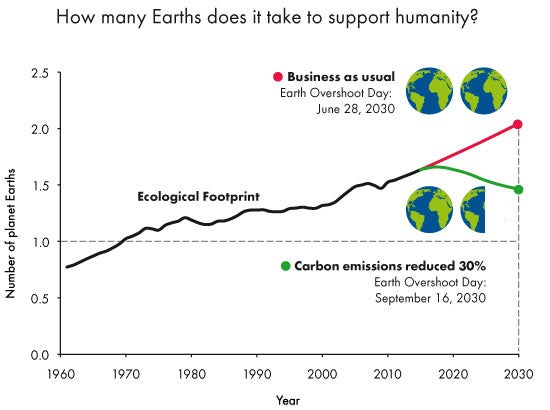Earth Overshoot Day: Humanity consumes 100% of planet's resources in eight months
The day when consumption becomes unsustainable is getting earlier every year

Your support helps us to tell the story
From reproductive rights to climate change to Big Tech, The Independent is on the ground when the story is developing. Whether it's investigating the financials of Elon Musk's pro-Trump PAC or producing our latest documentary, 'The A Word', which shines a light on the American women fighting for reproductive rights, we know how important it is to parse out the facts from the messaging.
At such a critical moment in US history, we need reporters on the ground. Your donation allows us to keep sending journalists to speak to both sides of the story.
The Independent is trusted by Americans across the entire political spectrum. And unlike many other quality news outlets, we choose not to lock Americans out of our reporting and analysis with paywalls. We believe quality journalism should be available to everyone, paid for by those who can afford it.
Your support makes all the difference.Humanity has already used up 100 per cent of the resources produced by the Earth this year, meaning that any consumption from now on represents an unsustainable burden on the planet.
Known as Earth Overshoot Day, the moment when humanity exceeds nature’s budget for the year was reached on 13 August – six days earlier than in 2014.
Calculated by the Global Footprint Network (GFN) sustainability think-tank, the landmark is a relatively recent concept. Humanity lived within the Earth’s means up until 1970 but, driven largely by carbon emissions, it has been in steadily increasing debt ever since.
It means humanity is on course to consume the equivalent of 1.6 Earths this year and, if the current course is maintained, we will be using the resources of two Earths per year by 2030.
The only way to reverse the trajectory of Earth Overshoot Day and push it back later in the year, GFN’s president Mathis Wackernagel said, is to drastically cut carbon emissions.
“Humanity’s carbon footprint alone more than doubled since the early 1970s, when the world went into ecological overshoot,” he said.

Looking forward to the COP 2015 UN climate summit in Paris later this year, Wackernagel said that meeting the global commitment to reduce emissions 30 per cent by 2030 would see Earth Overshoot Day pushed back to 16 September.
Wackernagel said: “We cannot stress enough the vital importance of reducing the carbon footprint, as nations are slated to commit to in Paris. It is not just good for the world, but increasingly becoming an economic necessity for each nation.
“We all know that the climate depends on it, but that is not the full story: Sustainability requires that everyone live well, within the means of one planet. This can only be achieved by keeping our Ecological Footprint within our planet’s resource budget.”
Join our commenting forum
Join thought-provoking conversations, follow other Independent readers and see their replies
Comments